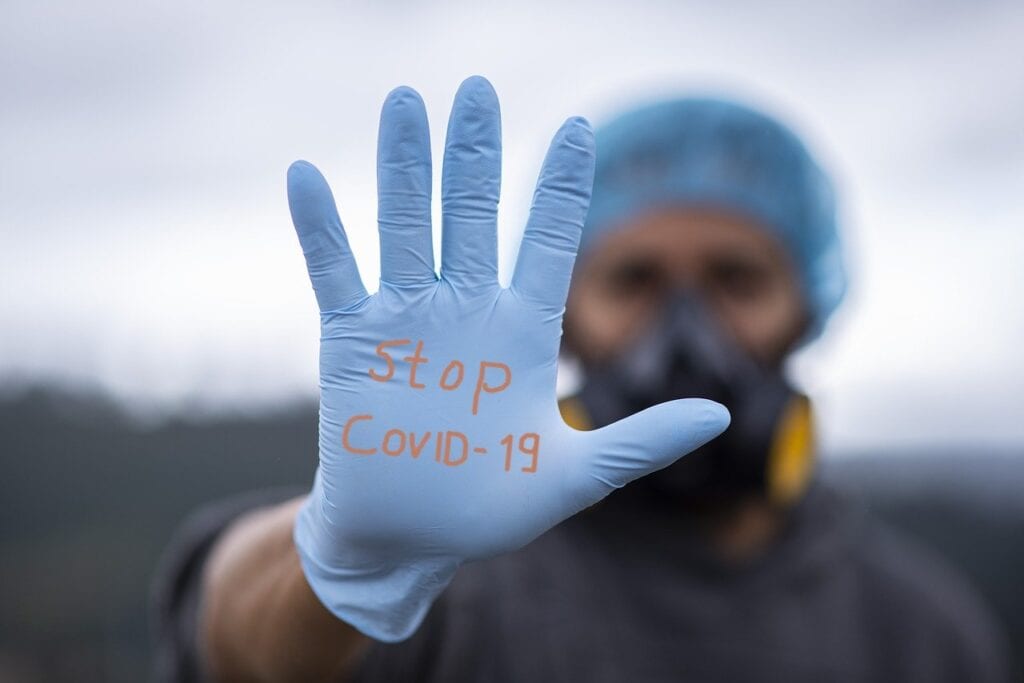By Danielle Bradshaw from In The Cloud Copy
The Lancet Psychiatry has published a review stating that although there have been signs demonstrating that delirium may be a common symptom of the novel coronavirus, mental disorders aren’t very commonly seen once patients have recovered from the illness.
Other, earlier types of coronavirus – such as severe acute respiratory syndrome (SARS) and Middle East respiratory syndrome (MERS) – outbreak patients displayed anxiety, post-traumatic stress disorder (PTSD), depression, and anxiety. That said, SARS and MERS infections typically don’t leave mental illnesses behind in their aftermath and it is expected that COVID-19 won’t, either.
Can There Be Potential Psychiatric Consequences of COVID-19?
To put it bluntly, yes. In fact, they have become rapidly apparent in the midst of the constant social distancing, quarantines, rising number of cases, general fear of the illness, and loss of employment. There are many people whose anxiety has been exacerbated by the current goings-on.
It has been shown that viral infections can negatively affect the central nervous system which may trigger neuropsychiatric syndromes or a group of symptoms that interferes with a person’s cognition, behavior, perception, and affective functions.
What Was the Exact Goal of the Study?
The goal of the research team headed by Johnathan P. Rogers, PhD, was to determine what effect COVID-19 has on patients’ psychology – or rather, if the virus has any negative psychiatric influence on people who have either have COVID or are thought to have it.
How the Study Was Conducted
To accomplish this, the team used multiple different databases (Embase, MEDLINE, medRxiv, bioRxiv, and the Cumulative Index to Nursing and Allied Health Literature data) to find neuropsychiatric and psychiatric information that was gathered from previously conducted English language studies conducted on those with, or those that possibly had, coronavirus.
The Study Results
The investigation team found 72 studies in total that met their parameters. 65 of them were reviewed by those within the same field and 7 were preprints. Together they covered a total amount of 3,559 coronavirus cases. The follow-ups for each study participant was done within the range of about two months (60 days) to 12 years.
Each case had a shared set of symptoms that were as follows:
- Anxiety, which 35.7% of patients suffered
- Depressed mood, which 32.6% of patients suffered
- Impaired memory, which 34.1% of patients suffered
- Confusion caused by SARS or MERS, which 24.9% of patients suffered
- Insomnia, which 41.9% of patients suffered
During the aftermath of the illness, the psychiatric symptoms were as follows:
- Anxiety, which 12.3% of patients experienced
- Depressed mood, which 10.5% of patients experienced
- Impaired memory, which 18.9% of patients experienced
- Irritability, which 12.8% of patients experienced
- Fatigue, which 19.3% of patients experienced
- Post-traumatic stress disorder, which 32.2% of patients experienced
The latter post-illness effect, PTSD, has especially been worrisome during the COVID-19 pandemic.
Speaking of COVID-19, 65% of those that have been hospitalized in the intensive care unit had delirium, 21% had altered consciousness (a perceived change in how mental functionality operates as experienced by the patient), and 69% suffered agitation.
There was even a study that showed that 33% of patients had dysexecutive syndromes (issues with gathering memories and thoughts as well as problems dealing with stimulus from the surrounding environment) when discharged from the hospital.
A Word of Warning
The research team has, however, cautioned that it may be difficult to apply these results to COVID-19 itself, as there is not quite enough data on the more severe symptoms of the virus or of the aftermath. They also note that the larger mortality percentage rate of MERS and SARS could be connected to the reason why there are seemingly fewer people that have suffered mental issues. Approximately 90% of the studies weren’t of the best quality, ranging from poor to medium at best.
Another reason that the results turned out as they did is that the preprints that were included weren’t peer-reviewed at the time of their study and non-English speaking studies were excluded.
The Final Word
The team has concluded that despite the various ways in which pandemics can influence mental health, most people aren’t affected by coronavirus induced mental disorders after infection and that there is not sufficient evidence to suggest that neuropsychiatric disorders beyond delirium are common.








